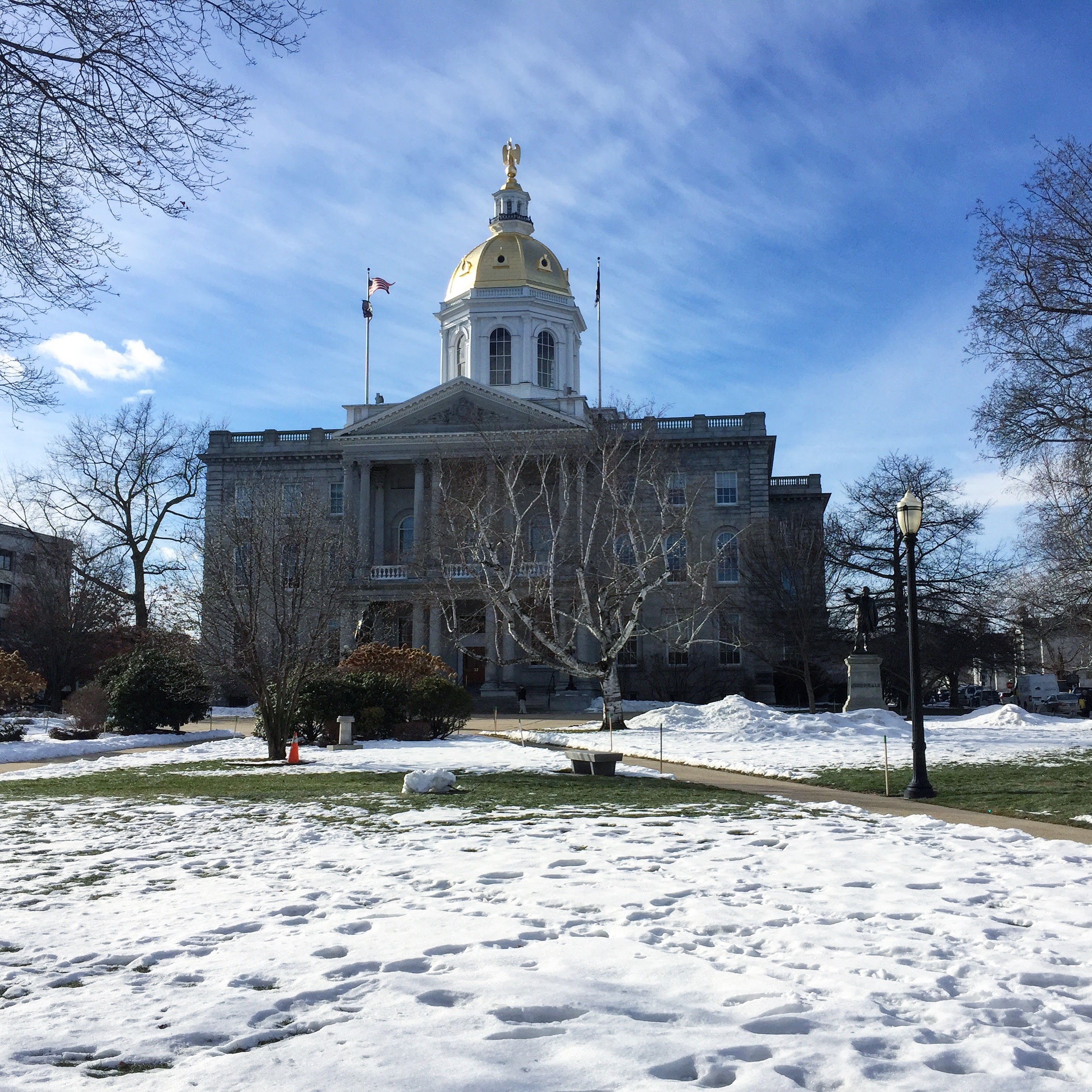Grandfamilies in New Hampshire and What They Have to Do With the Opioid Crisis

One of the big agenda items that passed the House on Thursday was a bill with an amendment that would appropriate $33 million in the current fiscal year to address a projected shortfall at the state Department of Health and Human Services. That was just the amendment, though. Lawmakers tacked it on to a bill that would give preference to grandparents to be the guardian of a child in certain cases, like when a parent has a substance abuse disorder.
The House overwhelmingly voted to concur with the Senate on House Bill 629. It passed on a 283-32 vote. It now heads to Gov. Chris Sununu for his likely signature.
Most of the fanfare over the passage was because of the emergency DHHS funds. Yet, thousands of Granite State grandparents are victims of the drug crisis after they have been called on to raise their grandchildren.
“I am pleased that the House today overwhelming approved HB 629. With this legislation New Hampshire is leading the way in giving grandparents a voice when it comes to the guardianship process in cases dealing with substance abuse,” said bill sponsor Rep. Mariellen MacKay, R-Nashua. “This important legislation will keep children out of the foster care system and allow them to stay with their families. HB 629 is about love, passion, family, and just doing the right thing, and I couldn’t be more proud to see this bill overwhelmingly pass the legislature.”
HB 629 places the burden of proof on the petitioner to demonstrate that grandparent guardianship is in the best interest of the child in situations that were brought on due to a parent’s substance abuse. It establishes a preference for grandparents to be appointed as guardians and makes benefit eligibility information available on the DHHS website, as well as to grandparents seeking guardianship over their grandchild.
New Hampshire social service agencies estimate that 10,000 grandparents are now full-time guardians of young children, mostly because of the drug epidemic. Nationwide, there were 2.882 million kids being cared for by their grandparents, which was up from 2.871 million in 2011, according to the Annie E. Casey Foundation.
“A lot of these grandparents are on fixed income, and they’re taking on a responsibility, and for a lot of them, it’s a hard financial responsibility,” said Keith Kuenning, director of Advocacy for Child and Family Services.
Applying for guardianship can involve many steps, and navigating state programs for food stamps and Medicare only adds to the confusion in what can be an overwhelming process for many people.
A Pew Charitable Trusts report released in November found that 21 percent of grandparents caring for grandchildren in the United States are living below the poverty line. In addition, about 39 percent are over the age of 60 and 26 percent have a disability.
Gail Snow, an administrator with the state’s Bureaus of Child Protection and Juvenile Justice Services within the Division of Children, Youth and Families, said the division removes kids from their parents in some abuse and neglect cases, which are often linked to substance abuse issues, but not always.
“We only remove children when it would not be safe for them to remain in their home,” she said. “As a division, when we remove a child…we look toward relatives to provide care, and grandparents are often the people who step up.”
The problem with the current law is that it calls for immediate protection for the child, but also requires that courts and child welfare agencies protect the sanctity of the home. That’s why Chris Wade, who is a grandparent raising his grandchild, is supportive of HB 629.
“[I]t allows us to not have to be put through the ringer to protect our grandchildren,” he told the Associated Press. “It means we can go to the judge and, if the parents want that child back after we have gone through guardianship, then it’s up to that parent to be able to prove that they are worthy of having their child back. ”
The bill also has the backing of New Futures, a nonprofit organization that focuses on the opioid crisis and its effects on children. They support it because “it provides support for children in crisis and families suffering from the opioid epidemic, encouraging healthy early childhood development.”
While this is a first step in understanding the relationship of grandparents, parents, and children who are impacted by the opioid epidemic, the New Hampshire Legislature is also looking to establish a study commission to really get the full picture.
Senate Bill 148 would establish a commission to study “grandfamilies ” in the state and would gather families, legislators, and advocacy groups to review what data exists for them, what challenges exist, and what solutions can be carried out at the policy level.
“When this happens, grandparents face specific challenges such as getting children into schools, securing the appropriate legal status as a guardian, and providing the child all they need to thrive,” said bill sponsor Sen. Martha Hennessey, D-Hanover, in February before the Senate approved the measure.
“[It] can also place a financial burden on the grandparents who are often on a fixed income,” she added, “This commission would ensure there are resources in place to help these families and to make sure the children have the care they require to thrive.”
SB 148 also passed the House earlier this month and now waits for Sununu’s signature.
Sign up for NH Journal’s must-read morning political newsletter.







